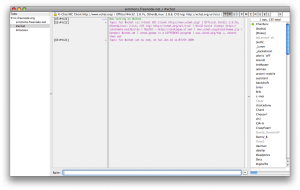Usually bash displays /etc/motd at the time of last login on opening a new shell. I do not find that information very useful, as I am opening new shells a lot, so the time does not really mean anything for me. Also, the MOTD rarely changes.
There is a feature in bash to hide these messages by creating a file ~/.hushlogin. This will make bash jump right to the first prompt without any output before.
But just in case the MOTD changes and includes important messages, I enhanced this setup a little bit. Instead of just touching the .hushlogin file, I am storing the old MOTD in it. At startup the old and current MOTD is compared against each other and will be displayed only if it differs. To avoid accidentally missing the MOTD, bash will also ask for my confirmation that I have read it.
Here is the snippet from my ~/.bashrc:
# Show motd only if necessary
cmp -s $HOME/.hushlogin /etc/motd
if [ $? != 0 ]; then
echo -e "\n==> !!! IMPORTANT: /etc/motd changed !!! <==\n"
cat /etc/motd
echo -e "\n==> !!! IMPORTANT: /etc/motd changed !!! <==\n"
read -e -n 1 -p "Show again? (Y/n) " ans
if [ "$ans" == "n" ]; then
cat /etc/motd > $HOME/.hushlogin
fi
fi
Please note: If you are going to use this, make sure it will not get executed on non-interactive shells. Otherwise it can break tools like scp, sftp or rsync. To ensure this will not be used on non-interactive shells, I am using this conditional at the top of my ~/.bashrc:
if [[ $- != *i* ]] ; then
# Shell is non-interactive. Be done now!
return
fi

